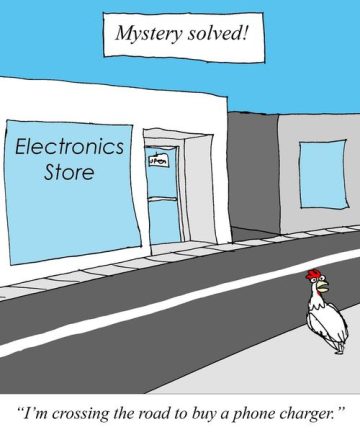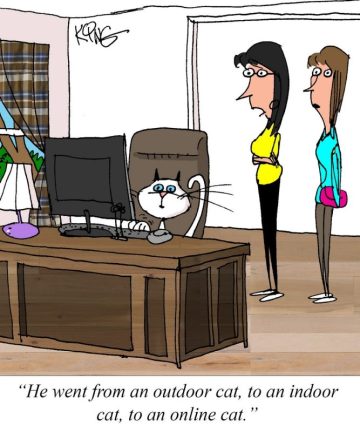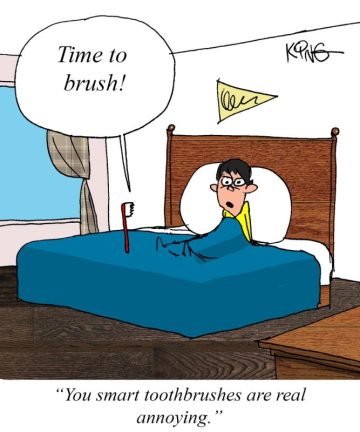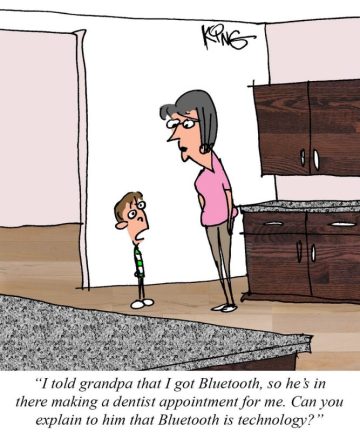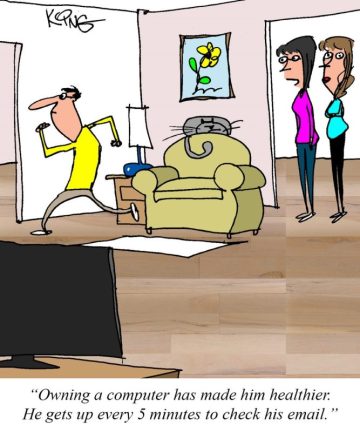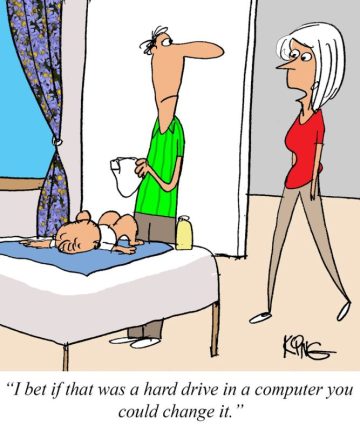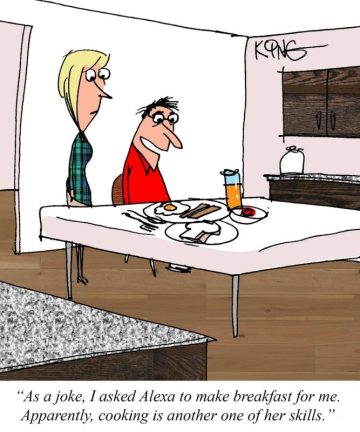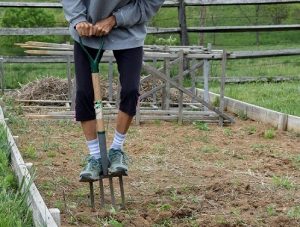Mature Living
Clearing out the house? Delete your email and text messages
As you downsize and sort through those old mementos, you’ll consider what items will mean something to the kids or grandkids and which means something only to you.
But these days it isn’t just boxes, it’s also the electronic messages on your computer. Some of those will have to go. Some of them will be precious.
The question is what should stay on the computer. Some sources say: Keep nothing. Delete everything personal.
You should ask yourself what, if anything, should be seen if you are no longer there to explain it.
The good:
The delightful messages that meant so much can be forwarded to senders with a note. Tell the sender you are cleaning out your computer and running across the note. Say how much it meant to you and why. Then delete it. Print it out if you must, but delete the email.
The bad and the ugly:
The problem with email is that people send it on impulse. What they say (and what you may have said) probably shouldn’t have lived a single day, much less a lifetime. But there those ugly messages are, buried deep in the computer, ready to be seen again. Delete them.
In fact, delete anything that is angry, embarrassing, or secret — not that too many things sent by email are secret, but still.
You might start by searching by email address. Scan through to see if anything is worth keeping. If you don’t see anything, delete every message contained in that email. Do that for every friend and family member.
Browser history
Find out how to wipe your browser history and do it. Nothing is more misleading to other people than the history of what you looked at online.
Mature Living
Legal and Estate Planning Essentials for Moving to a Retirement Home
Transitioning to a retirement home is a pivotal moment that necessitates thorough preparation, especially when it comes to legal and financial planning. Here’s a roadmap to guide you through the essential legal and estate considerations for this significant life change.
1. Document Review: Ensure your will, power of attorney, and healthcare directives are up-to-date, reflecting your current wishes and circumstances. This foundational step secures your future intentions and care preferences.
2. Contract Clarity: Before signing any contracts with the retirement home, consult a lawyer to understand the specifics of your agreement. This includes rights, obligations, fees, and any restrictions, ensuring no surprises down the line.
3. Financial Assessment: Carefully evaluate your financial situation to ensure you can comfortably afford the retirement home fees. Consider consulting a financial advisor to explore long-term funding strategies and options.
4. Asset Management: Decide on the future of your property and other significant assets. Align these decisions with your overall estate plan to ensure a cohesive strategy.
5. Healthcare and Tax Planning: Review your healthcare coverage to ensure it meets your needs within the retirement home. Also, consider the potential tax implications of any changes and seek professional advice to navigate these complexities.
6. Inheritance Intentions: Have a candid discussion with a legal professional about your inheritance wishes, considering how moving to a retirement home might impact asset distribution among your heirs.
7. Open Family Dialogue: Communicate your plans and decisions openly with your family members. This ensures everyone is on the same page and can support you through the transition.
8. Professional Guidance: Engage with legal, financial, and tax professionals for personalized advice tailored to your situation. Their expertise can help you navigate the legal and financial intricacies of moving to a retirement home.
Addressing these considerations not only ensures a smoother transition to retirement living but also protects your interests and provides peace of mind for you and your loved ones during this significant life change.
Interesting Things to Know
Finding Love After 50: A Guide to New Beginnings
The quest for love and companionship is a timeless adventure that certainly doesn’t end at 50. In fact, for many, this can be an exciting new chapter in the journey of love. If you’re over 50 and looking to meet your soulmate, here are four empowering tips to guide you along the way.
1. Broaden Your Social Horizons
Opening yourself up to new experiences is key to meeting new people. Whether it’s joining a club, taking a class, or exploring online dating, stepping outside your usual social circle can significantly increase your chances of meeting someone special. Websites and apps specifically designed for those over 50 can provide a comfortable platform for connecting with others who share your interests and life experiences.
2. Embrace New Opportunities with Openness
Keeping an open mind is essential when looking for love later in life. Be receptive to new experiences, say yes to invitations, and be willing to explore unfamiliar territories. Love often arrives in unexpected ways, and staying open allows you to seize opportunities that could lead to meaningful connections.
3. Cultivate Self-Confidence
Self-love and acceptance are incredibly attractive qualities. Embrace who you are, including every gray hair and laugh line, as they are testaments to your life’s journey. Taking care of your physical and mental well-being can boost your self-confidence, making you more appealing to others. Remember, confidence is not about being flawless; it’s about being comfortable in your own skin.
4. Take Your Time
Patience is vital in the search for a compatible partner. Resist the urge to rush into a relationship. Instead, invest time in getting to know someone, allowing the connection to develop naturally. Healthy relationships are built on mutual respect, shared interests, and genuine affection, so let things unfold at their own pace.
Exploring In-Person Dating Options
For those who prefer meeting potential partners in person, there are plenty of options:
- Travel Agencies for Singles Over 50: These agencies offer trips and cruises designed specifically for single seniors, providing a fun and relaxed environment to meet others.
- Leisure Clubs and Groups: Joining clubs that cater to your interests can connect you with like-minded individuals.
- Local Social Events: Keep an eye out for events or gatherings in your community that are geared toward your age group.
Finding love after 50 is not just possible; it can be a thrilling and fulfilling experience. By expanding your social network, embracing new experiences with an open heart, building confidence in yourself, and nurturing connections, you’re setting the stage for a beautiful partnership. Remember, finding someone with whom you can share life’s adventures is never too late.
Mature Living
Keeping Family Bonds Strong in Retirement Homes
Living in a retirement home doesn’t mean family connections should fade. In fact, maintaining these bonds is crucial for the well-being of seniors. Here are three effective ways families can stay close and keep the warmth of family ties alive, even when apart.
1. Prioritize Face-to-Face Time
Nothing replaces the joy of in-person visits. Regularly scheduled family visits provide something for seniors to look forward to and help maintain a strong sense of belonging and family unity. These moments are precious, whether it’s a simple lunch together, a stroll in the garden, or attending a facility-hosted event.
2. Leverage Technology for Connection
In today’s digital age, staying in touch has never been easier. Video calls, social media, and instant messaging allow families to share life’s moments in real time. For seniors less familiar with technology, family members or retirement home staff can assist in setting up these digital lifelines. Don’t underestimate the power of a traditional phone call or the charm of receiving a handwritten letter either; both are deeply personal ways to communicate love and care.
3. Engage in Community Events Together
Many retirement homes host events and activities designed to enrich the lives of their residents. Participating in these with your loved ones supports their involvement in community life and creates shared memories. Whether it’s a holiday celebration, an art class, or a musical performance, joining in these activities can significantly enhance the quality of your visits.
Combining these approaches helps maintain strong family ties and enriches seniors’ lives in retirement homes. By staying connected, families can ensure their loved ones continue to feel valued, loved, and emotionally supported throughout their golden years.
Mature Living
Birdwatching for Seniors: A Guide to Starting Your Avian Adventure
Birdwatching is a serene and engaging hobby that combines the joy of being outdoors with the thrill of discovering nature’s beauty. Birdwatching offers the perfect blend of relaxation and excitement for seniors looking for a leisurely yet fulfilling pastime. Here’s how you can embark on your own birdwatching journey.
1. Gather the Essentials
The first step to beginning your birdwatching adventure is to equip yourself with the right tools. A quality pair of binoculars is crucial for spotting birds from a distance without disturbing them. Look for binoculars that are comfortable for you to hold and provide clear, bright images. Additionally, a birding guidebook specific to your region will help you identify various species and understand more about their habits and habitats. These items are readily available at outdoor supply stores or online.
2. Choose Your Birdwatching Spot
One of the many delights of birdwatching is that you can do it almost anywhere. Your backyard or neighborhood park can be excellent places to start. If you’re up for a bit more adventure, visiting local nature reserves, forests, or coastal areas can provide a wider variety of birds to observe. Remember, the key is to find a spot where you feel comfortable and can enjoy the tranquility of your surroundings.
3. Timing Is Everything
Birds are most active during the early morning and late afternoon, making dawn and dusk ideal for birdwatching. During these times, birds are typically feeding and are more visible. Planning your birdwatching sessions around these times will increase your chances of spotting a wide variety of birds.
4. Observe and Note
As you begin to encounter different birds, take the time to observe their unique characteristics. Note their size, color, behavior, and any distinctive markings. Keeping a birdwatching journal can enhance your experience, allowing you to record your sightings and track the different species you’ve observed over time. This practice not only aids in identification but also adds a personal touch to your birdwatching adventure.
5. Share the Experience
Birdwatching can be a wonderful way to connect with friends and family who share your interest. Joining a local birdwatching club or group can also be a great way to meet like-minded individuals and learn from more experienced birdwatchers. Sharing your discoveries and experiences with others can make birdwatching even more rewarding.
Birdwatching is more than just a hobby; it’s a gateway to appreciating the intricate beauty of nature and the diversity of avian life. It encourages patience, attentiveness, and a deeper connection with the natural world. So why not grab your binoculars, step outside, and let the world of birds captivate your curiosity and imagination? Who knows what fascinating creatures you’ll encounter on your avian adventure!
Mature Living
The Heart of Retirement Homes: Understanding Staff Roles and Support Systems
Behind the warm and inviting atmosphere of retirement homes and assisted living facilities lies a dedicated team of professionals. Each staff member plays a crucial role in ensuring residents receive the care, support, and community they deserve. Let’s take a closer look at the key roles and how they contribute to creating a safe, fulfilling living environment for seniors.
Certified Nursing Assistants (CNAs): The Frontline of Care CNAs are the backbone of daily care, assisting residents with personal tasks like bathing, dressing, and managing medications. They closely monitor health changes and communicate vital information to the nursing team, providing a crucial link between residents and their medical care.
Nurses (LPNs and RNs): Medical Care and Management Licensed Practical Nurses (LPNs) and Registered Nurses (RNs) play a pivotal role in health management. They administer medications, manage chronic conditions, and ensure each resident’s health plan is followed, coordinating with doctors to provide comprehensive care.
Activity Directors: Enriching Lives Activity directors are key to enhancing residents’ quality of life. They design a wide range of programs to encourage social engagement, physical activity, and mental stimulation, ensuring residents have opportunities to enjoy hobbies and socialize.
Housekeeping Staff: Ensuring a Clean and Safe Environment The cleanliness and upkeep of the facility are in the hands of the housekeeping staff. They maintain high standards of hygiene and organization, contributing to a comfortable and safe living space.
Dining Services Staff: Nourishing Body and Soul Preparing and serving meals, dining services staff cater to residents’ nutritional needs and preferences. They ensure that meal times are not only about nutrition but also moments of enjoyment and social interaction.
Maintenance Staff: Keeping the Facility in Top Shape Maintenance personnel are responsible for the physical upkeep of the facility, addressing repairs, and ensuring all areas are safe and accessible, thereby safeguarding residents’ well-being.
Administrative Staff: The Facility’s Backbone The smooth operation of a retirement home rests on its administrative team. They ensure the facility runs smoothly from managing admissions and finances to coordinating care and day-to-day operations.
Together, these professionals form a support system that allows seniors to enjoy independence and quality of life in their later years. Their dedication and care make retirement homes and assisted living facilities vibrant communities where seniors can thrive.
Interesting Things to Know
Navigating the Challenges of the Sandwich Generation: Strategies to Prevent Burnout
Being part of the “sandwich generation” — caring for both your children and aging parents while managing your own life — can be incredibly rewarding yet undeniably challenging. Balancing these responsibilities often leads to stress and burnout if not managed properly. Here are three essential strategies to help you maintain balance and well-being amidst these demands.
1. Prioritize Self-Care
The adage “you can’t pour from an empty cup” holds especially true for those juggling multiple caregiving roles. Prioritizing your health and well-being is not selfish; it’s necessary. Here’s how:
- Establish a Self-Care Routine: Incorporate activities that rejuvenate your mind, body, and spirit. Whether it’s exercise, reading, or meditation, find what helps you unwind and make it a non-negotiable part of your day.
- Seek Support: Don’t hesitate to lean on friends, support groups, or professionals for emotional support. Sharing your experiences can provide relief and valuable insights.
2. Financial Planning and Open Communication
Financial pressures can significantly contribute to stress. Taking proactive steps to manage these concerns can alleviate some of the burdens:
- Discuss Finances Openly: Have honest conversations about your financial situation with your family. This includes discussing long-term care options for your parents and education financing for your children.
- Seek Financial Advice: Consider consulting a financial advisor who can help you navigate savings, investments, and insurance options to secure your family’s future.
3. Effective Scheduling and Delegation
Managing everyone’s needs requires organization and teamwork. Here’s how to streamline your responsibilities:
- Use a Family Calendar: A shared digital or physical calendar can help keep track of appointments, events, and responsibilities, ensuring everyone is informed.
- Delegate Tasks: Involve family members in caregiving and household duties. Assign tasks according to each person’s ability and availability, fostering a sense of contribution and teamwork.
Utilize Available Resources
Remember, numerous resources are available to support you in your caregiving journey. This includes home care services for your aging parents and financial assistance programs for education or medical needs. Research local and national programs that can offer relief and support.
Balancing the needs of your children, parents, and yourself is no small feat. However, you can navigate these challenges more effectively by prioritizing self-care, managing finances proactively, organizing schedules, and seeking external support. Remember, it’s important to acknowledge your efforts and recognize that seeking help is a strength, not a weakness.






















